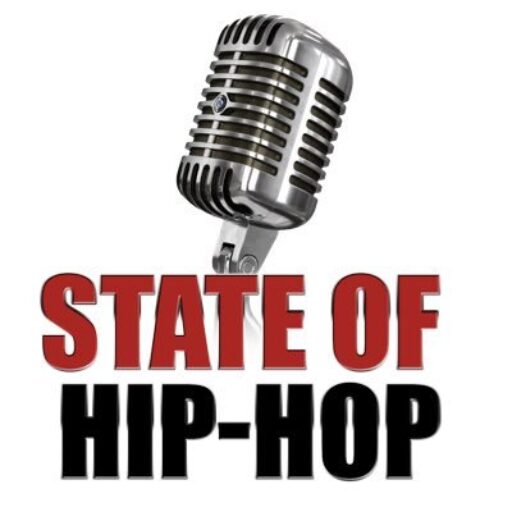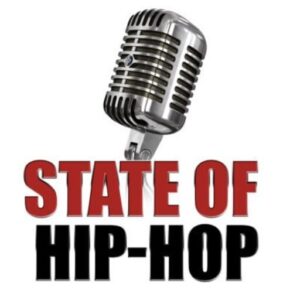Our community has seen a concerning rise in suicide rates. We need mental health interventions and support systems that resonate with our community and acknowledge the specific barriers we face. We spoke with Dr. Jill Harkavy-Friedman, Senior Vice President of Research at the American Foundation for Suicide Prevention (AFSP). Drawing from the 2024 Public Perception of Mental Health and Suicide Prevention Poll, she shares key findings from the study. And discusses the resources AFSP is developing to promote mental well-being within the Black community.
BHM: Can you provide an overview of the current landscape of suicide within the Black community, including any notable statistics that highlight the severity of the issue?
Dr. Harkavy-Friedman: Suicide is a leading cause of death in the United States. It’s concerning that suicide is a health issue in the Black community, and the rates are trending upward. This loss of life is tragic and creates suffering for those who lose loved ones to suicide.
According to the CDC’s most recent data, suicide rates among Black people ages 15-24 have increased by 28.3% (11.0 in 2019 to 14.1 in 2022 per 100,000 people), and 25–34-year-olds have experienced the largest increase from 12.6 in 2019 to 15.9 in 2022 per 100,000 people (a 26.7% increase).
BHM: Can you elaborate on the key findings of the recent national poll regarding perceptions of mental health and suicide prevention, particularly among Black respondents?
Dr. Harkavy-Friedman: The 2024 Public Perception of Mental Health and Suicide Prevention Poll found overall that nine out of 10 people in the US believe that suicide can be prevented at least sometimes, showing an incredible shift in public understanding about suicide from decades ago when society viewed suicide as an inevitable outcome. There is a growing willingness to talk about mental health and suicide, signaling that negative attitudes are decreasing. Still, there is more work to do in the face of barriers to help-seeking for all communities.
The poll was intentionally doubled this year to study a larger group of respondents from underrepresented ethnic and racial communities so we can look more closely at diverse groups in the US population. The data revealed some specific insights about the Black community, which in turn can help the suicide prevention community understand the unique challenges this community faces in accessing mental health care, as well as to create culturally relevant strategies. Key findings included:
Respondents across racial and ethnic groups equally reported suicide can be prevented for at least some time. They would reach out to someone who they thought may be experiencing mental health problems or thinking of suicide, and they would reach out for help if needed.
A High Likelihood of Using 988: 79% of Black respondents said they are likely to contact 988.
Differences emerged regarding perceived barriers to help-seeking: A more common barrier to seeking crisis services for several underrepresented populations is the fear of what family, friends, or others might think, including Black respondents (33%).
BHM: What specific challenges do Black individuals face when seeking mental health support, and how can these challenges be effectively addressed?
Dr. Harkavy-Friedman: Black individuals often face significant challenges when seeking mental health support because of negative attitudes around mental illness and cultural beliefs within the community.
For example, the poll found that fear of what family, friends or others might think is perceived to be a barrier for Black individuals (33%) from seeking mental health support.
Other factors include the mistrust of the healthcare system due to historical racial disparities; culturally competent providers are an essential need for any group of individuals, and the availability of culturally competent care is often limited for Black communities. To effectively address these issues, the suicide prevention community must work with the Black community, and organizations and policymakers must engage in efforts to ensure that culturally relevant mental health resources are equitably available across the nation.
BHM: How does the AFSP plan to develop and promote relevant resources that are effective for the mental health needs of the Black community?
Dr. Harkavy-Friedman: AFSP is committed to working with the Black community, organizations, and policymakers to ensure that culturally relevant mental health resources are equitably available nationwide. This includes:
LETS (Listening, Empathy, Trust, Support) Save Lives: An Introduction to Suicide Prevention for the Black Community is a presentation created by and for Black people. It is designed to be culturally sensitive, foster conversations about mental health, and raise awareness of suicide prevention for individuals who identify as Black or African American. The program is grounded in research and delivered by trained presenters with lived experience within Black and African American Communities.
Soul Shop for Black Churches, a training to help faith leaders, including church staff, pastors, faith-based clinicians, and other lay leaders in Black and African American churches, minister to those in their congregations who may be struggling or who have been impacted by suicide.
Research studies about and by Black people such as The HAVEN (Helping to Alleviate Valley Experiences Now) Connect program, a depression and suicide prevention program for Black youth ages 13-19 in 12 churches across New York State. The HAVEN-Connect program builds on natural cohesive networks, enhances positive coping skills, promotes help-seeking acceptance through its Youth Connect program, and reinforces these protective factors through sermons, Bible study, and Sunday school activities.
Another study is the Racial Discrimination, Emotion Reactivity and Dysregulation, and Suicide Risk in a Clinical Sample of Black and Latinx Adolescents. To address the racial and ethnic disparity in youth suicidal behaviors, this study uses behavioral tasks and inflammation-related biomarkers to explore potential pathways through which experiences of racism may increase suicide-related risk among Black and Latinx adolescents from an under-resourced community. Findings will help improve the cultural responsiveness of suicide prevention strategies.
Promoting Equity in Firearm Safety and Suicide Prevention to Reduce Suicide in Black Youth. This study leverages a large implementation trial in Michigan and Colorado to examine if the implementation of an evidence-based safe firearm storage program as a universal suicide prevention strategy in pediatric primary care differs across racial groups, as well as factors that may moderate potential disparities. This study explores Black parents’ experiences with program receipt and firearm storage decision-making processes.
BHM: In what ways can community leaders and organizations within the Black community contribute to reducing the negative attitudes associated with mental health issues and suicide?
Dr. Harkavy-Friedman: Fortunately, we’ve been witnessing people talking more openly about mental health and offering support to one another. This is powerful and can help save lives. Hearing stories of those addressing their mental health needs helps empower us to do the same. Education and awareness also play an essential role in changing attitudes about mental health and suicide. Some resources that are focused on supporting individuals in the Black community include:
The Boris Lawrence Henson Foundation’s vision is to eradicate the stigma around mental health issues in the African American community.
Lee Thompson Young Foundation envisions a world in which all recognize mental illness as a treatable, biopsychosocial disorder, and the stigma associated with it no longer exists; a world that supports and encourages wholeness and well-being at every stage of life. They focus on mental health education for African American communities.
Black Emotional and Mental Health Collective is a collective of advocates, yoga teachers, artists, therapists, lawyers, religious leaders, teachers, psychologists, and activists committed to Black communities’ emotional health, mental health, and healing. They envision a world where there are no barriers to Black healing. Their mission is to remove the barriers Black people experience accessing or staying connected with emotional health care and healing. They do this through education, training, advocacy, and the creative arts.
AFSP also has local chapters in all 50 states, including DC and Puerto Rico, that invite supporters to help transform their communities into ones that are smart about mental health and where everyone has support when needed.
Remember to check in on our friends and family. A simple “How are you doing?” can make a big difference. If you’re feeling down, try to reach out for support; resources are available to help. Taking care of ourselves and each other is essential.
The post Creating Support to Combat Our Rising Suicide Rates appeared first on Black Health Matters.


